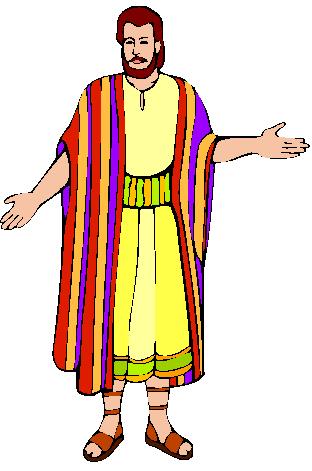< God's Kingdom The key to Understanding Bible Prophecy Part 2 >Miracles Unfold Part 1- An Overview |
| What is Prophecy ? | |
| "First of all you must understand this, that no prophecy of scripture is a matter of ones own interpretation, because no prophecy ever came by the will of man, but men moved by the Holy Spirit spoke from God." | To
understand prophecy, the starting point could be to describe an
author, or a prophet. Simply put, a prophet in biblical terms is a person who is an authoritative and infallible teacher of God's will. Gods mind & will are sent by his power (spirit) to the prophets, who in turn spoke & wrote, taught, encouraged and warned any who were willing to listen. Prophets had no special power of their own. They came from all walks of life. They did not inherit this great honour of being God's mouthpiece because of their worthiness or right, or by human appointment, but were chosen, prepared & called of God, then commanded to proclaim a message. Their words, always in God's time and at his discretion were accredited by signs or by the fulfilment of their predictions, conforming with the consistency of God's truths. A prophets message was principally a moral and ethical challenge, to accept the teachings, to be encouraged by the message, to be assured by the fulfilment. *Throughout the ages there have
been many false prophets, but it is an individuals own
responsibility to read carefully & evaluate a prophets message.
The true test was whether or not his words came to pass. *Look for proof of a TRUE PROPHET Deut 18:18-22
|
| Who were the Prophets ? | |
 |
Prophets
can be traced right back to the beginning of Israel's history.
Most people have heard of the great man Moses. He was one of the
first of many prophets. The heyday of the prophets was during
the time when the Jewish Nation settled in Canaan.
The last prophet God sent was His own Son Jesus, who spoke about signs and events that would change the world. The prophet Samuel was known as one of the "first of the prophets," Who by his enthusiasm & integrity gathered many followers who together worshipped & served their God & in turn influenced many Israelites for good. Prophets like Nathan & Gad followed to become influential advisers in the kings court, especially kings David & Solomon. As Israel's history moved on, sadly prophets lost credibility, as their messages became polluted. This happened because they became involved in the politics of nations. Hence we see the false prophets emerging. However God always provides a faithful remnant. He sent strong individuals like Elijah and Elisha, along with Amos & Hosea to the tribes of Israel, while to the south, the same message & predictions were given through Micah, Isaiah, & Jeremiah. As this unique nation's destiny unfolded, great men like Ezekiel & Daniel were important in maintaining the faith of those in exile, while Zechariah, Haggai & Malachi played their part as time moved rapidly along to herald the greatest prophet of all time, the Lord Jesus Christ.
|
| Some Characteristics of Bible Prophecy | |
Difficult at times: YES BUT: "It is the
glory of God to conceal a thing,
|
|
| Keys for studying Bible Prophecy | |
| When
studying any part of the Bible, especially with Bible Prophecy,
you may find the following approach helpful.
1. What is the context of the prophecy?
2. What is the main theme/message of the section?
3. What is the time period for the fulfilment of the prophecy?
4. Note key words or ideas. 5. Are any of the key words literal or symbolic?
6. What is the prophecy about?
7. Do the details of this prophecy fit in with other prophecies? 8. Has any of it been fulfilled?
9. Is any part of the prophecy yet to be fulfilled?
|
|